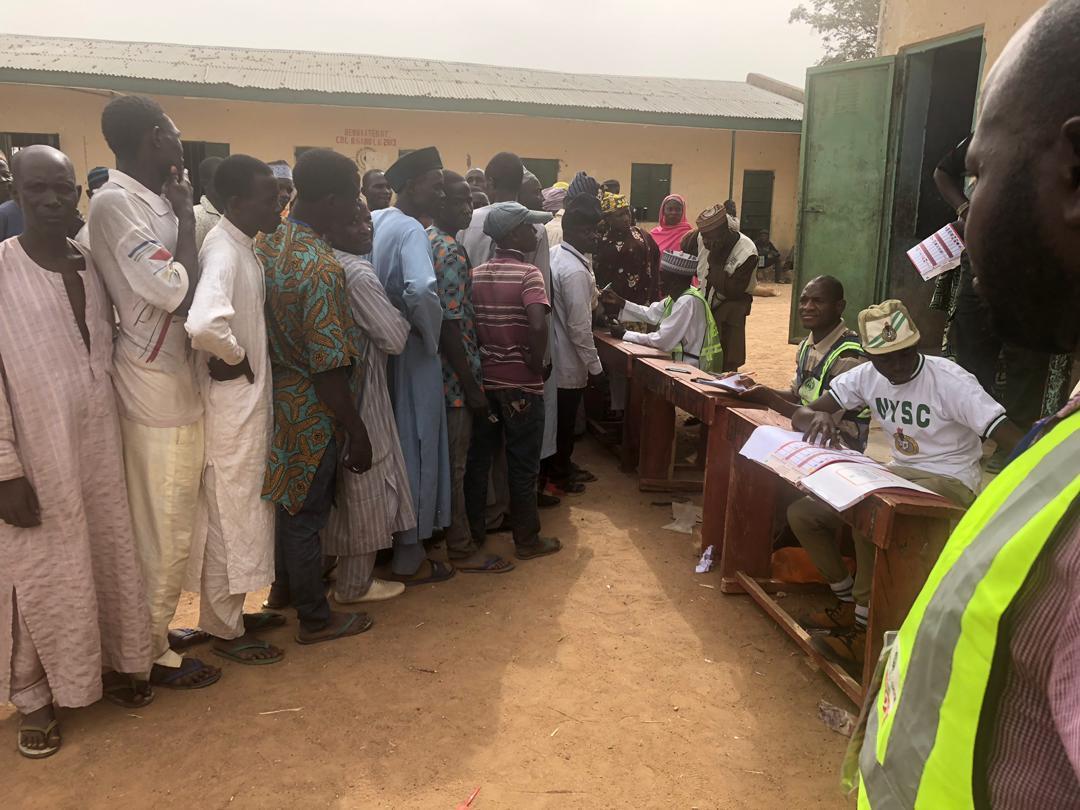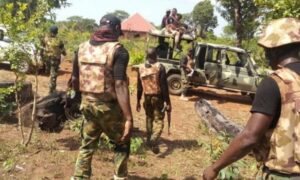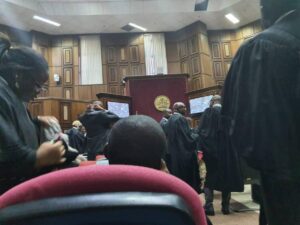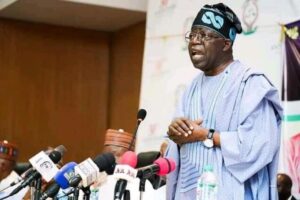
Violence, vote trading and intimidation of voters characterised the February 23 supplementary governorship election in Kano State, the European Union Election Observation Mission (EU EOM) said on Monday in its report of the exercise monitored by 20 of its observers.
The mission said it was disturbed that both the Independent National Electoral Commission (INEC) and security agencies did little to address the violence and malpractices, which spread to many parts of Kano State.
Also in the statement, the EU said its deployed observers, some of whom were prevented from accessing some polling units, witnessed widespread interference and vote-buying by party agents during the supplementary poll.
“Extensive electoral security problems were observed in some areas, with groups of men with weapons intimidating and obstructing the process, and security agencies ineffective at protecting citizens’ right to vote,” the EU said in its report sent to PREMIUM TIMES on Monday afternoon.
“In particular, parts of Kano were largely inaccessible to EU observers, and citizen observers and journalists were also obstructed. EU observers also witnessed increased interference by party agents and cases of vote-buying,” the major foreign observers’ group found.
Supplementary governorship elections were conducted in five states – Adamawa, Bauchi, Benue, Kano, Plateau and Sokoto — where results from the March 9 initial ballot were declared inconclusive as the margin of victory was less than the cancelled votes.
Notwithstanding the violence across Kano, INEC on Sunday declared Abdullahi Ganduje of the All Progressives Congress winner of the governorship supplementary election, handing the scandal-ridden governor a second term.
Mr Ganduje was trailing Abba Yusuf of the Peoples Democratic Party by about 26,000 votes before the March 9 first ballot was declared inconclusive, but INEC said additional figures from the supplementary election put the governor ahead of his main challenger.
The EU Mission acknowledged general improvements in the supplementary polls, but said these were overshadowed by apparent disregard for ballot secrecy, inability to access some polling units, amongst other issues.
“Throughout the day, INEC did not comment on electoral disturbances, despite its overall responsibility for the
election and security arrangements,” the observers said. “In the polling units that could be fully observed, there were improved logistical arrangements and procedures were mostly followed, although there were problems with secrecy of the ballot.”
The mission identified suspected political thugs, who patrolled Kano streets with machetes and other deadly weapons as largely responsible for the brutality — which neither police nor INEC could do anything about.
“In some areas the environment was intimidating and not conducive to voters’ free participation in the election.”
“Party leaderships locally and centrally did not appear to take any steps to rein in supporters and prevent evident violence, intimidation or other misconduct.”
“In Nasarawa local government area (LGA) in Kano, which accounted for approximately one-third of all registered voters for the supplementary governorship election, EU observers witnessed organised intimidation of voters.”
“Groups of youths with clubs and machetes patrolled the streets, and people with party agent tags harassed voters. During collation in Kano, EU observers saw that several INEC polling staff had been attacked.Large groups of men with weapons were not contained by the police.”
Due to intimidating crowds and disturbances, EU observers in Kano could not access or continue observation in polling units in Dala and Nasarawa LGAs.”
The observers also noted previously reported cases of violence against media practitioners on election duty.
“The electoral process in Kano was further compromised by the harassment and obstruction of citizen observers, and journalists from BBC Hausa, the Nigerian Television Authority, and TVC. This compromised scrutiny of both polling and collation of results in the affected areas.”
Other supplementary elections
“Isolated violent incidents also disrupted voting and counting in other states. In Bauchi, EU observers witnessed around 50 people with clubs disrupting counting in one polling unit.”
“In Benue, election materials were burnt, resulting in the cancellation of polling affecting 13,000 registered voters, and a collation officer carrying result sheets was shot in the leg,” the observers’ group found.
The EU Mission has been in Nigeria on invitation of INEC since January, and is expected to continue its observation until early April. A final report of the EU Mission on the entire 2019 general elections in Nigeria is expected to be made public in June.
INEC did not comment on the violence, but the police said the election was largely peaceful, and skirmishes, where reported, were summarily addressed.
You may be interested

PSG To Reignite Interest In Osimhen
Webby - December 21, 2024Paris Saint-Germain have contacted Napoli to discuss signing Victor Osimhen in January, according to reports in France.It is reported that…

Arteta Provides Injury Updates On Five Arsenal Players Ahead Palace Clash
Webby - December 20, 2024Arsenal manager Mikel Arteta has revealed that Declan Rice and Riccardo Calafiori are both available to be in the Gunners…

Carabao Cup: Spurs Edge Man United In Seven-Goal Thriller To Reach Semi-finals
Webby - December 19, 2024Tottenham Hotspur edged Manchester United 4-3 in the quarter-finals of the Carabao Cup on Thursday.Spurs raced to a 3-0 lead…





















![American Pastor, David Wilson Seen Eating The Box Of Woman Who Isn’t His Wife [Video]](https://onlinenigeria.com/wp-content/uploads/2019/10/american-pastor-david-wilson-seen-eating-the-box-of-woman-who-isnt-his-wife-video-150x150.jpg)








